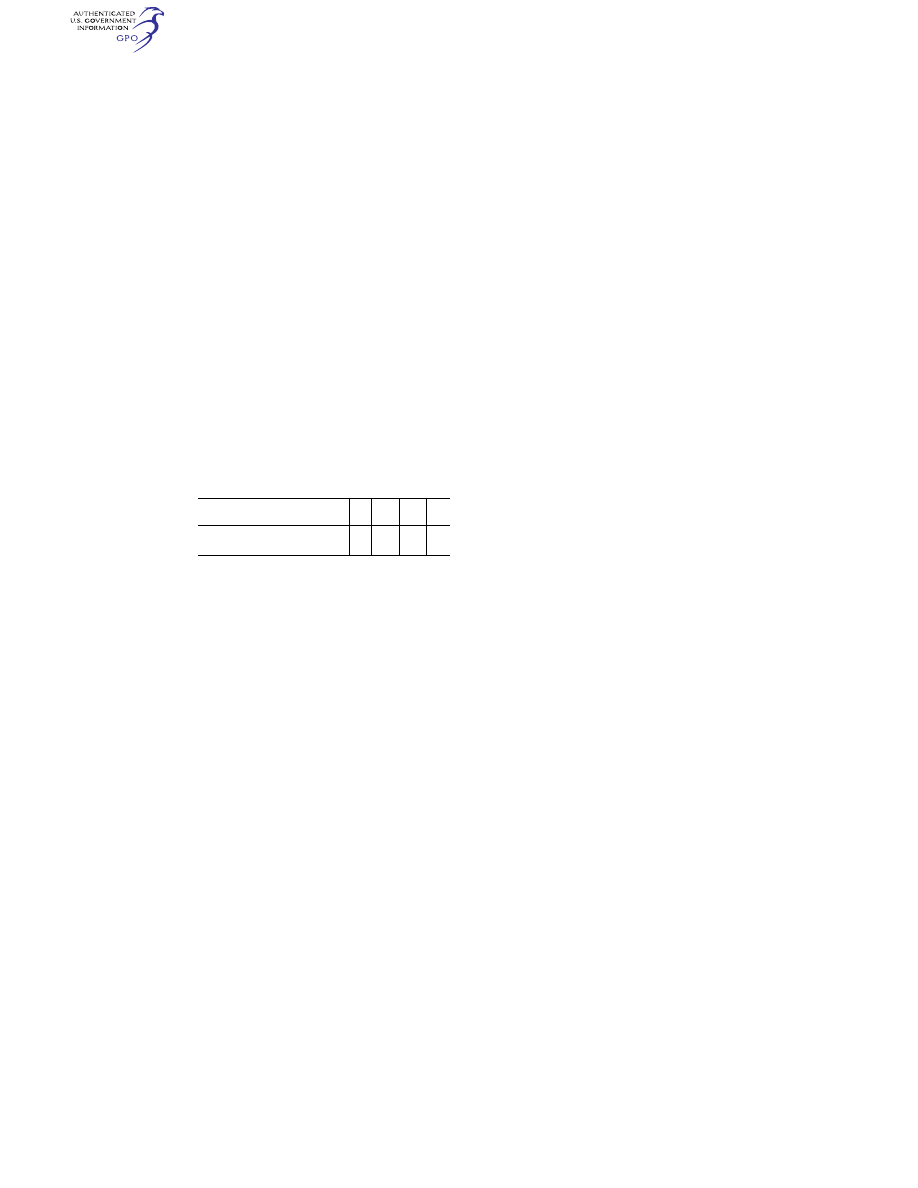
631
Federal Aviation Administration, DOT
§ 67.107
room, using both ears, at a distance of
6 feet from the examiner, with the back
turned to the examiner.
(2) Demonstrate an acceptable under-
standing of speech as determined by
audiometric speech discrimination
testing to a score of at least 70 percent
obtained in one ear or in a sound field
environment.
(3) Provide acceptable results of pure
tone audiometric testing of unaided
hearing acuity according to the fol-
lowing table of worst acceptable
thresholds, using the calibration stand-
ards of the American National Stand-
ards Institute, 1969 (11 West 42d Street,
New York, NY 10036):
Frequency (Hz)
500
Hz
1000
Hz
2000
Hz
3000
Hz
Better ear (Db) .................................
35
30
30
40
Poorer ear (Db) ...............................
35
50
50
60
(b) No disease or condition of the
middle or internal ear, nose, oral cav-
ity, pharynx, or larynx that—
(1) Interferes with, or is aggravated
by, flying or may reasonably be ex-
pected to do so; or
(2) Interferes with, or may reason-
ably be expected to interfere with,
clear and effective speech communica-
tion.
(c) No disease or condition mani-
fested by, or that may reasonably be
expected to be manifested by, vertigo
or a disturbance of equilibrium.
§ 67.107
Mental.
Mental standards for a first-class air-
man medical certificate are:
(a) No established medical history or
clinical diagnosis of any of the fol-
lowing:
(1) A personality disorder that is se-
vere enough to have repeatedly mani-
fested itself by overt acts.
(2) A psychosis. As used in this sec-
tion, ‘‘psychosis’’ refers to a mental
disorder in which:
(i) The individual has manifested de-
lusions, hallucinations, grossly bizarre
or disorganized behavior, or other com-
monly accepted symptoms of this con-
dition; or
(ii) The individual may reasonably be
expected to manifest delusions, hallu-
cinations, grossly bizarre or disorga-
nized behavior, or other commonly ac-
cepted symptoms of this condition.
(3) A bipolar disorder.
(4) Substance dependence, except
where there is established clinical evi-
dence, satisfactory to the Federal Air
Surgeon, of recovery, including sus-
tained total abstinence from the sub-
stance(s) for not less than the pre-
ceding 2 years. As used in this sec-
tion—
(i) ‘‘Substance’’ includes: Alcohol;
other sedatives and hypnotics;
anxiolytics; opioids; central nervous
system stimulants such as cocaine, am-
phetamines, and similarly acting
sympathomimetics; hallucinogens;
phencyclidine or similarly acting
arylcyclohexylamines; cannabis;
inhalants; and other psychoactive
drugs and chemicals; and
(ii) ‘‘Substance dependence’’ means a
condition in which a person is depend-
ent on a substance, other than tobacco
or ordinary xanthine-containing (e.g.,
caffeine) beverages, as evidenced by—
(A) Increased tolerance;
(B) Manifestation of withdrawal
symptoms;
(C) Impaired control of use; or
(D) Continued use despite damage to
physical health or impairment of so-
cial, personal, or occupational func-
tioning.
(b) No substance abuse within the
preceding 2 years defined as:
(1) Use of a substance in a situation
in which that use was physically haz-
ardous, if there has been at any other
time an instance of the use of a sub-
stance also in a situation in which that
use was physically hazardous;
(2) A verified positive drug test re-
sult, an alcohol test result of 0.04 or
greater alcohol concentration, or a re-
fusal to submit to a drug or alcohol
test required by the U.S. Department
of Transportation or an agency of the
U.S. Department of Transportation; or
(3) Misuse of a substance that the
Federal Air Surgeon, based on case his-
tory and appropriate, qualified medical
judgment relating to the substance in-
volved, finds—
(i) Makes the person unable to safely
perform the duties or exercise the
privileges of the airman certificate ap-
plied for or held; or
(ii) May reasonably be expected, for
the maximum duration of the airman
medical certificate applied for or held,
VerDate Sep<11>2014
14:00 Mar 14, 2024
Jkt 262047
PO 00000
Frm 00641
Fmt 8010
Sfmt 8010
Q:\14\14V2.TXT
PC31
aworley on LAPBH6H6L3 with DISTILLER
